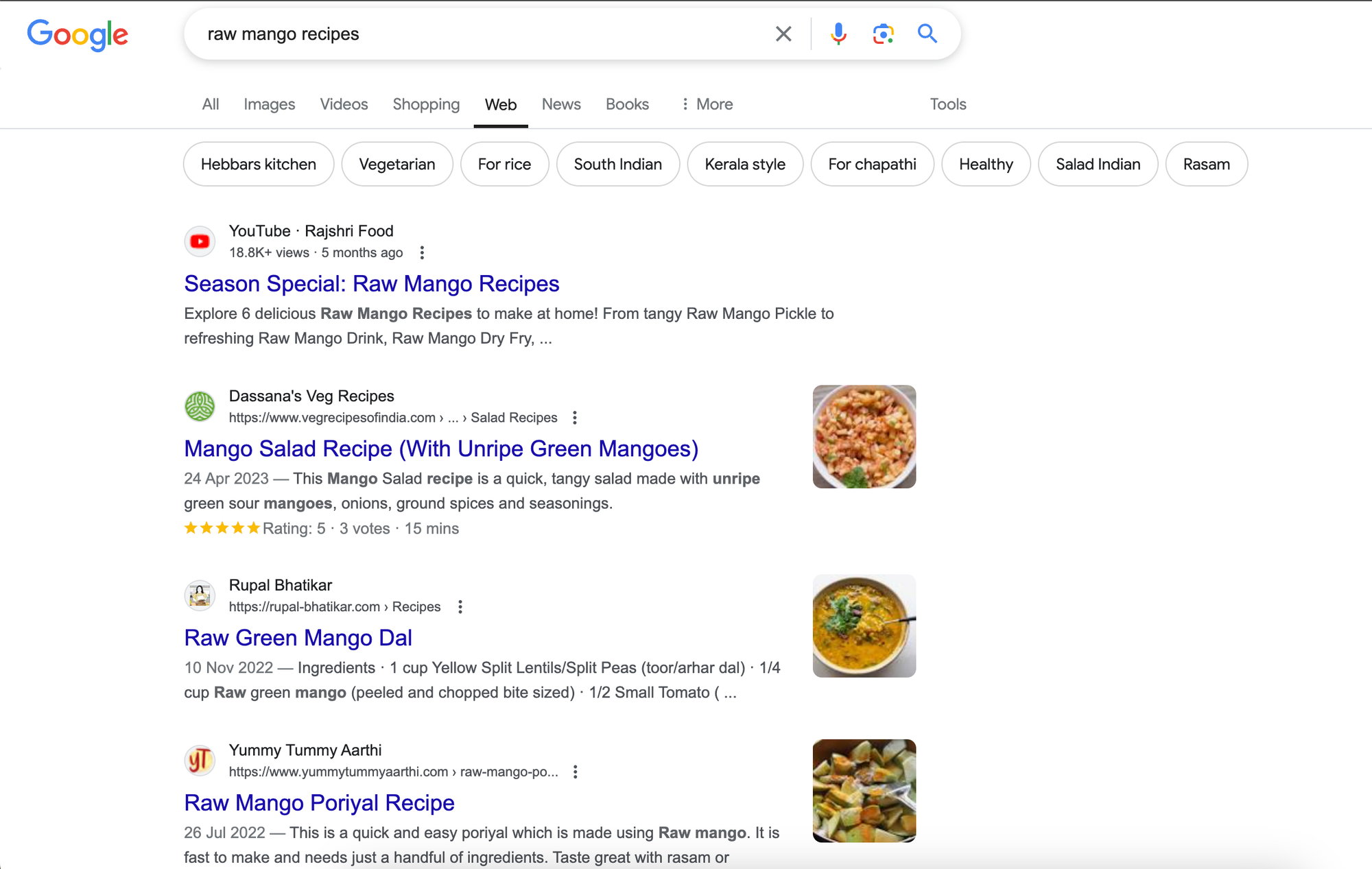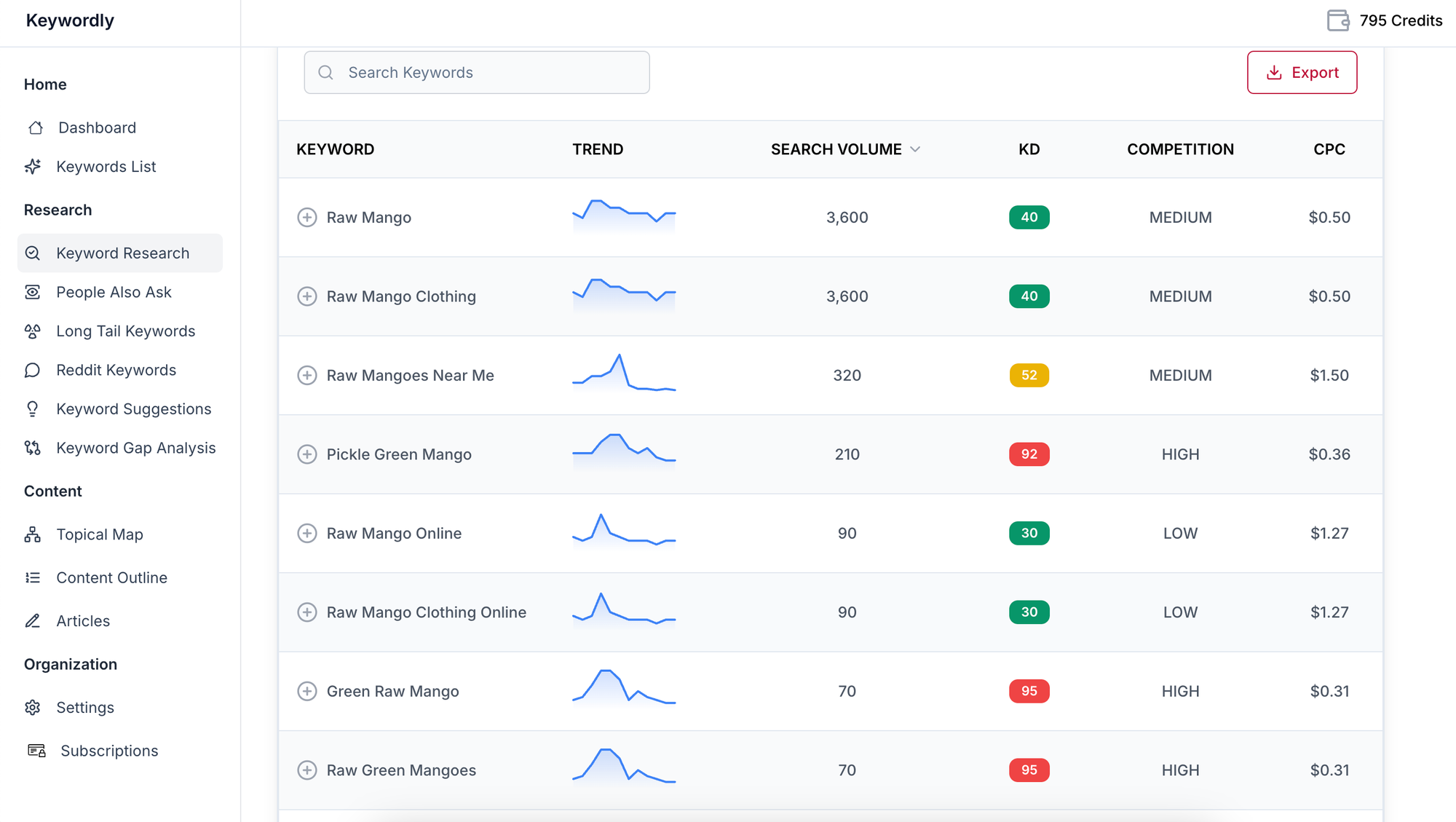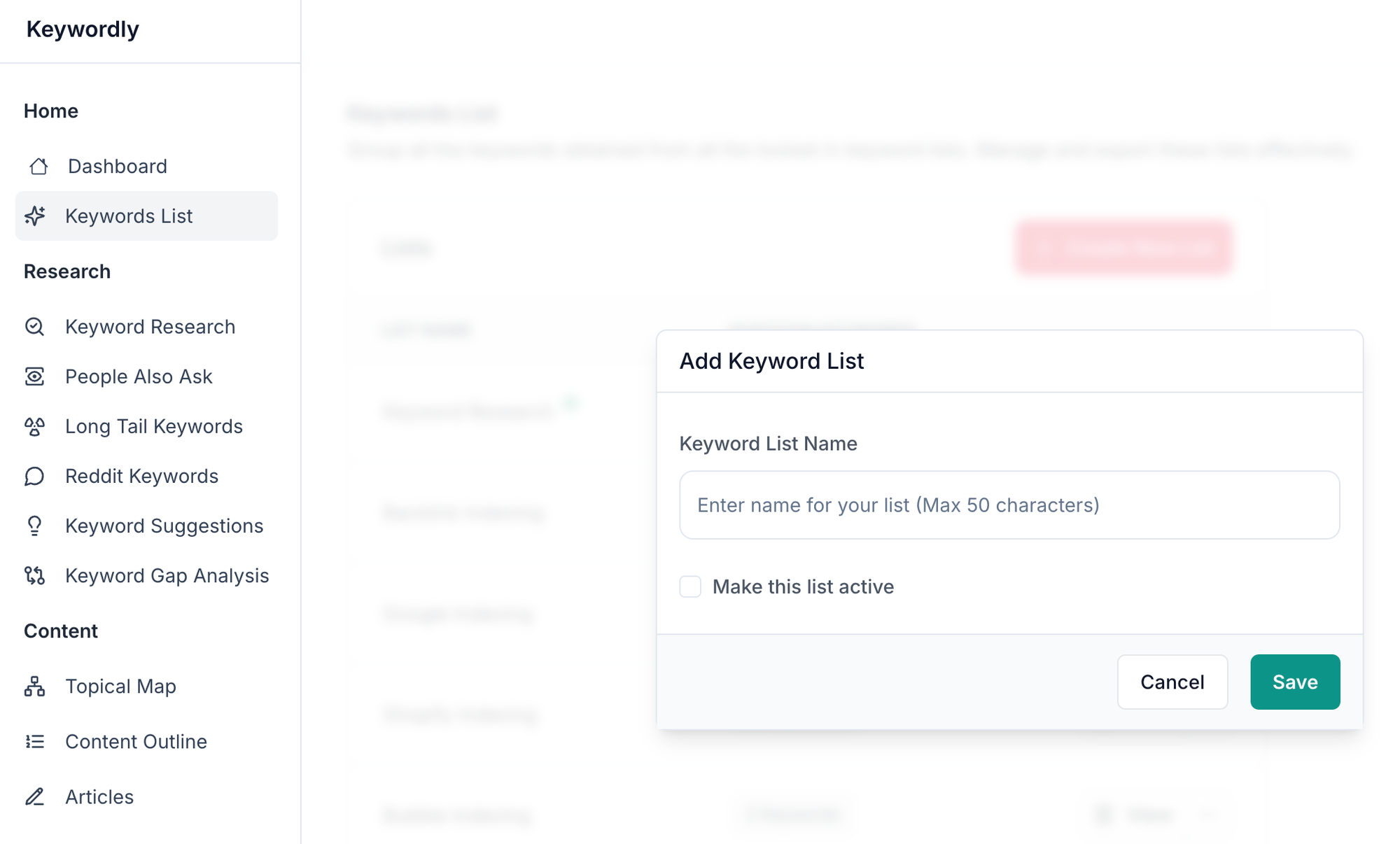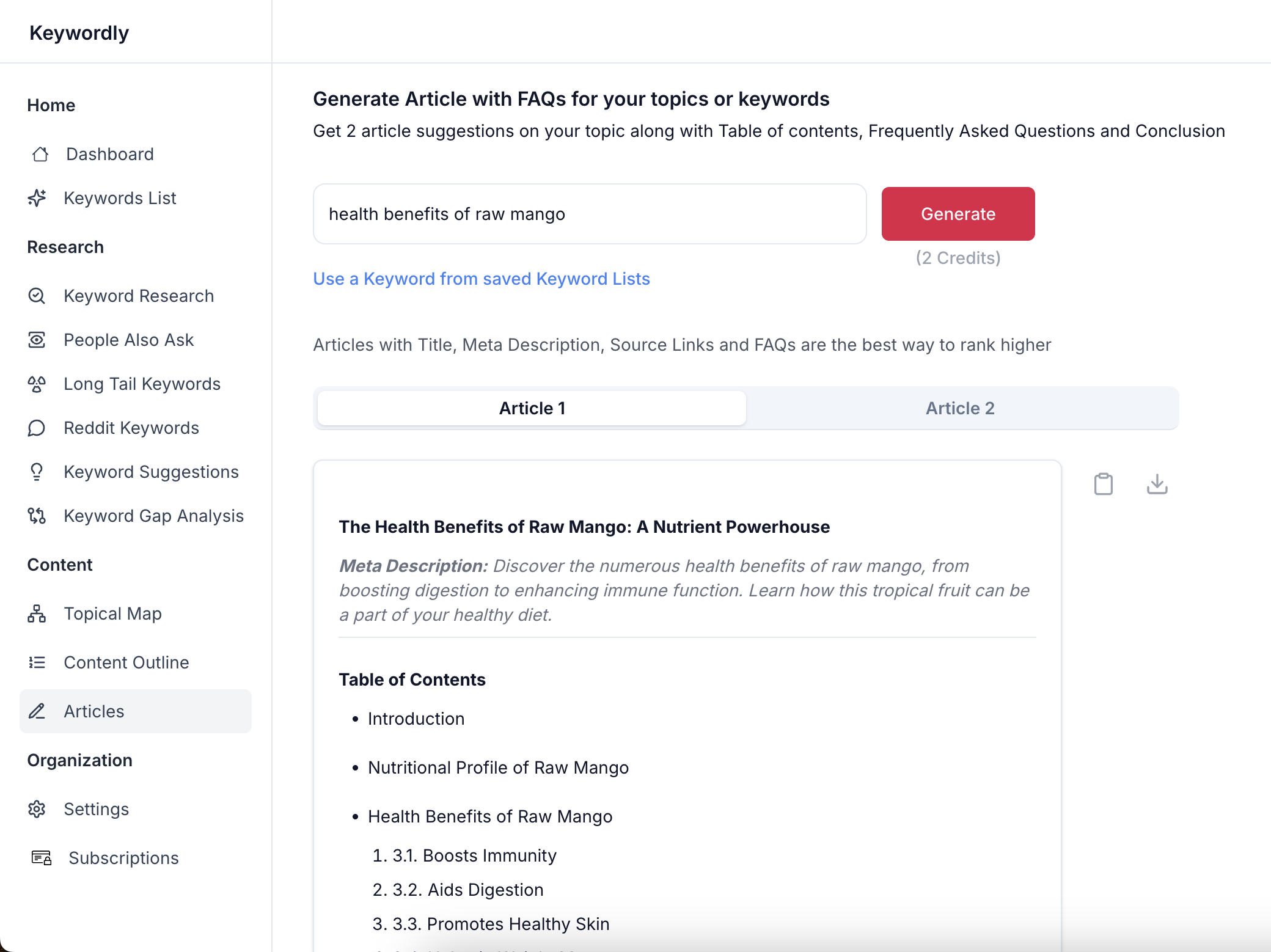What Is Keyword Research for SEO
Discover the ins and outs of keyword research—what it is, why it's important in digital marketing, how it works, and answers to frequently asked questions in this comprehensive guide.

Table of Contents
- What is Keyword Research?
- Why is Keyword Research Important?
- What is the Purpose of Keyword Research?
- How is Keyword Research Used in Digital Marketing?
- How Does Keyword Research Work?
- FAQs
- Conclusion
Introduction
One of the most effective ways to connect with potential customers is through keyword research. This process forms the backbone of search engine optimization (SEO) and content marketing strategies.
By identifying and analysing phrases and questions that individuals use when searching for information online, businesses can tailor their content to meet these needs. In this article, we will delve into what keyword research is, its significance, its purpose, and how it functions.
What is Keyword Research?
Keyword research is the practice of identifying and analyzing the search terms that people enter into search engines like Google. These search terms, or "keywords," are the queries users input when looking for information, products, or services online.
Start-ups, bloggers, and affiliate marketers focused on organic sales should enhance their brand name by addressing product quality, support, and knowledge. By conducting keyword research, businesses can gain insights into how their target audience communicates, the questions they are asking, and the types of content they are seeking.
When you know what your audience is searching for, you can create content that aligns with their needs.
This process typically involves utilising tools such as Ahrefs, SEMrush, or Keywordly to uncover relevant keywords. The analysis includes assessing the search volume (the frequency with which a keyword is searched), keyword difficulty (how competitive the keyword is), and related keywords that could be leveraged for content creation and SEO strategies.
Let's say you run a D2C (Direct-to-Consumer) brand that sells fresh, organic vegetables, including raw mangoes. To optimize your website and content for the keyword "raw mango", you can follow these steps:

1. Keyword Targeting:
Brainstorming: Start by brainstorming potential keywords or phrases that relate to your business, products, or services.
For e.g. in the case of raw mango, Start by identifying variations of the "raw mango" keyword. Use tools like Ahrefs, SEMrush or keywordly. These tools provide data on search volume, keyword difficulty, and related keywords.

- “Buy raw mango online”
- “Health benefits of raw mango”
- “Raw mango recipes”
- “Raw mango chutney”
that way, someone searching for “raw mango recipes” is likely looking for different content than someone searching for “buy raw mangoes online.
Analyzing Results: Evaluate the data to find high-volume keywords that are relevant yet not overly competitive. Identify which keywords align with your content goals.
After completing your keyword research, create a list of keywords, such as "raw mango," and start adding the question keywords you've researched to this list.
Below is the screenshot from Keywordly tool

Assessing Search Intent: Understand the search intent behind the keywords. Are users seeking information, making a purchase, or looking for specific services? This insight will drive your content's direction.
2. Content Creation:
Creating Content and Optimization: Once you have a solid list of keywords, you can start creating or optimising content around these terms to enhance visibility and engagement.
Create a blog post about the health benefits of raw mango. Include details about its nutritional value, vitamins, and the ways raw mangoes can improve digestive health or fight heat-related issues in the summer. For instance, a paragraph could look like this:
"Raw mangoes are not only delicious but packed with vital nutrients like Vitamin C, which boosts immunity. They also help in digestion and have cooling effects, making them perfect for summer."
In this blog, you could also embed YouTube videos demonstrating how to prepare raw mango recipes like chutney, pickles, or salads. These videos not only provide helpful information but also improve engagement and on-page time, which are key SEO factors.

3. On-Page SEO:
Optimize your product page for raw mangoes by incorporating the keyword “buy raw mangoes online” into the title, meta description, and product descriptions. For example:
- Title: Fresh Organic Raw Mangoes - Buy Raw Mangoes Online
- Meta Description: Order fresh, organic raw mangoes directly from our farm. Perfect for chutneys, pickles, and more. Fast, farm-to-doorstep delivery.
- Product Description: Our raw mangoes are hand-picked, organic, and full of natural flavour. Whether you want to make a delicious raw mango chutney or simply enjoy them fresh, order now for fast delivery.
4. External Links for Authority:
Link to external resources to enhance the credibility of your content. For instance, you could link to authoritative sources that highlight the health benefits of raw mangoes. An external link to a credible nutrition site can signal to Google that your content is well-researched and valuable.
Example:
"According to a study by Healthline, raw mangoes are rich in antioxidants, which help in neutralizing free radicals and improving skin health."
5. Internal Linking:
Make sure to create internal links to other relevant pages on your site. For instance, if you have a blog post on organic farming or other seasonal produce, link to it from your raw mango product page.
6. Technical SEO:
Ensure that your website loads quickly and is mobile-friendly, as both are important ranking factors. Also, include structured data to help search engines better understand your page. For example, if you include raw mango recipes, use recipe schema to enhance your search result appearance with ratings and images.
By integrating these keyword research insights into your strategy, your D2C vegetable brand can boost its SEO rankings, particularly for terms related to "raw mango." This approach will drive more targeted traffic, resulting in higher visibility and sales.
Monitoring and Adjusting: Keyword research is an ongoing process. Continually monitor your keyword performance and refine your strategy based on changing trends or shifts in audience behaviour.
Why is keyword research important?
Keyword research is a fundamental aspect of digital marketing because it directly influences content strategy, search engine rankings, and audience engagement. Here are several reasons why this practice is so important:
- Driving Traffic: By targeting the right keywords, businesses can attract more organic traffic to their websites. This increases the chances of converting visitors into customers.
- Understanding Audience Intent: Keyword research helps marketers better understand what their audience is searching for and why. This insight enables them to create relevant content that meets those needs.
- Optimizing Content: Knowing which keywords to focus on allows for better optimization of content for search engines. This leads to higher visibility in search results.
- Staying Competitive: In an increasingly digital landscape, keyword research enables businesses to identify and capitalize on gaps in their competitors' strategies, thereby gaining a competitive edge.
- Improving ROI: By aligning marketing efforts with search intents, businesses can improve the return on investment for their digital marketing campaigns.
How is Keyword Research Used in Digital Marketing?
In the context of digital marketing, keyword research plays an integral role in various strategies, including:
- Search Engine Optimization (SEO): SEO professionals use keyword research to find keywords that can drive traffic and conversions, informing on-site optimization and off-site link-building strategies.
- Content Marketing: Keyword research informs content creation and blog post topics, ensuring the material published is relevant and valuable to the target audience.
- Pay-Per-Click (PPC) Advertising: Platforms like Google Ads require advertisers to focus on keyword selection to bid on, ensuring that their ads get displayed for the most relevant searches.
- Social Media Marketing: When crafting posts or ads for social media, understanding trending keywords can enhance engagement and visibility.
- Email Marketing: Keywords can inform subject lines and content within emails to ensure that they resonate with the target audience and improve open and click-through rates.
FAQs
- What is keyword density?
Keyword density is a measure of how often a keyword appears about the total word count of a piece of content. It is used to determine how relevant the content is to a keyword but is less critical with modern search engine algorithms. - How long should my keywords be?
Keywords can range from short-tail (1-2 words) to long-tail (3 or more words). Long-tail keywords are often better for targeting specific user intent and typically have less competition. - How often should I perform keyword research?
It’s advisable to conduct keyword research regularly; ideally, every few months. This ensures you remain aligned with trends and changes in audience behavior. - Does keyword research help with voice search?
Yes! As voice search becomes increasingly popular, keyword research helps identify conversational phrases and questions that users are likely to ask. - Can I use the same keywords across multiple pages?
While you can use similar keywords, it’s often best to target unique keywords for each page to avoid keyword cannibalization and maximize SEO effectiveness. - Are there free tools for keyword research?
Yes, there are several free tools available, including Google Keyword Planner, Ubersuggest, and AnswerThePublic, which can help you kickstart your keyword research.
Conclusion
Keyword research serves as the foundation for successful digital marketing strategies. By understanding what keywords are relevant to your audience, you can create targeted content, enhance SEO efforts, and drive more website traffic. This process also enables businesses to connect with their audience on a deeper level by addressing their specific needs and interests.
As the digital landscape continues to evolve, staying informed about keyword trends and search behaviours will remain an invaluable asset for any marketer looking to thrive in this competitive space.
Further Read
- Loganix - 7 Ways To Get High Authority Backlinks in 2024This article discusses the importance of high authority backlinks in SEO, outlining various strategies to secure them, including guest posting and leveraging broken links. It emphasizes the significance of link quality over quantity for improving search engine rankings. 1
- The Hoth - How to Get High-Authority Backlinks from Relevant Websites In 2024This resource explains what high-authority backlinks are and why they matter for SEO. It provides practical tips for acquiring these valuable links, highlighting the importance of relevance and quality in backlink strategies. 3
- LinkGraph - High Authority Backlinks — An OverviewThis overview explains the benefits of high authority backlinks, detailing how they can enhance website visibility and credibility. The article also offers strategies for obtaining these backlinks, such as guest posting and using broken link opportunities. 4
- Loganix - Niche-Focused Authority Links - Guaranteed PlacementThis page details a service that focuses on securing high authority backlinks from niche-relevant sites. It explains the metrics used to evaluate potential backlink opportunities and emphasizes the importance of contextual relevance for effective link building. 2
- Ahrefs Blog - The Ultimate Guide to Link BuildingAlthough not listed in the search results, Ahrefs is a highly authoritative source in SEO and link building strategies. Their comprehensive guide covers various aspects of link building, including keyword research, outreach tactics, and measuring link effectiveness.



